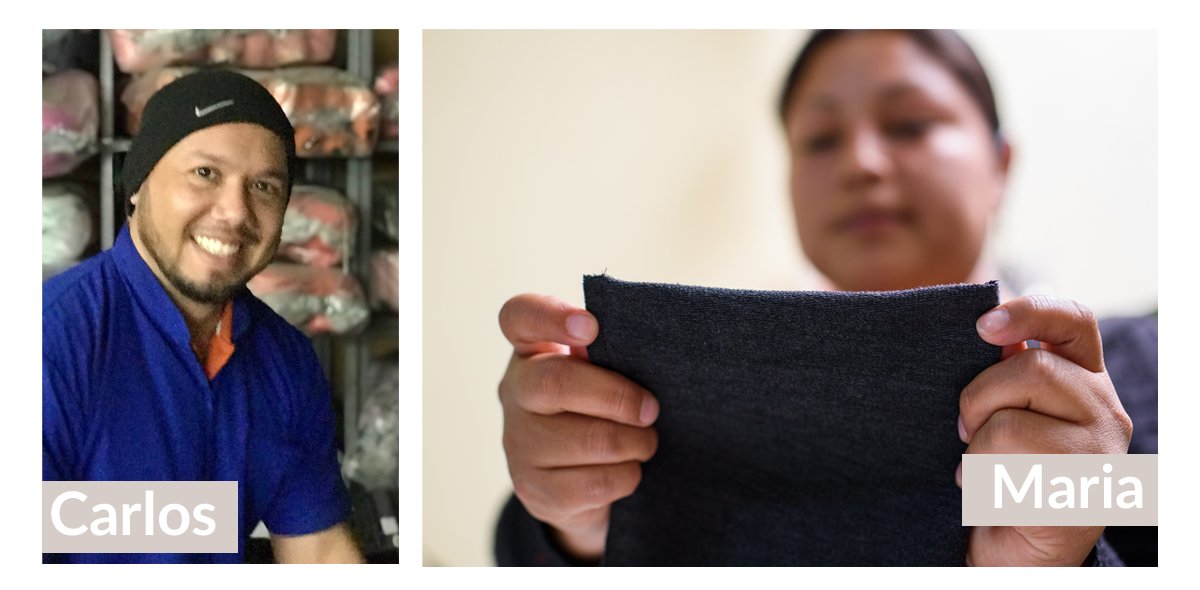By far one of the biggest challenges operating a fair trade clothing brand is the enormous competitive disadvantage in terms of when we pay our suppliers for the clothing they produce.
Larger apparel brands pay for their apparel weeks or in many cases months after they receive and start selling it. On top of that, if they order a product that didn't sell well - that their designer misjudged or that their marketer did a poor job promoting - they often demand a discounted price from the supplier on that product, even though they did nothing wrong on their end. How's that for risk/reward imbalance!
These timing and discount advantages for the brands make it very challenging for a factory to pay its workers on time, muchless pay them a living wage.
As a fair trade clothing brand, we make sure workers like the ones shown here in Lima, Peru are never left out of the equation. Yes, our business may go up and down with the economy, but if Naomi makes a shirt, Naomi will be paid justly for the time she spent making it. Period. If we design a product that it turns out not many people liked, that ouch is on us, not on anyone else. Period.

One of the principles of fair trade is that producers should never be out any funds since they usually cannot obtain financing. So when we place our orders for spring merchandise - merchandise that arrives in February and is ordered in August - we pay our suppliers sometimes as much as 40% of the cost of the garments in August so they can proceed to buy the raw materials needed. The other 60% is paid for shortly before and after the merchandise is shipped. The 40% down payment is a huge hurdle for us, but without it, most fair trade producers would not be able to stay afloat.
All of the above is in a "normal" year. Now enter the coronavirus pandemic. It's been well documented that apparel workers in developing countries are being devastated from all ends. From the virus itself of course, but also from the decisions of global apparel brands to simply not pay (ever!) for merchandise those workers already made, cancelling their paychecks and often their jobs, often sending them into abject poverty.

Think about it like this. I promise to pay you $10 to make a jacket. You make the jacket and send it to me. Three months later I announce that I am not going to pay you for it, sorry covid and all, hope you understand. I then sell the jacket in my store. Even if i only sell it for $1, I made a huge profit compared to the price I paid ($0). Meanwhile I direct my finance guy to pay our shareholders a record stock dividend because, wow, profits are looking pretty good. And while we're at it, let's make a heartwarming ad campaign about all pulling together to get through this difficult period.
So when you see large global clothing brands hashtagging your heartstrings with #WereAllInThisTogether, ask what they mean by "all." You can also take direct action to pressure brands to do better. Fashion Revolution is an excellent resource if you want to do more.

Let's make 'We're all in this together' mean it for real!

Robert Behnke
Co-Founder & President
